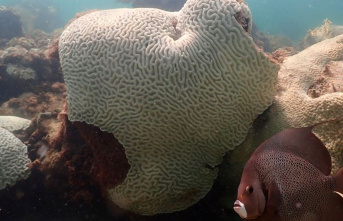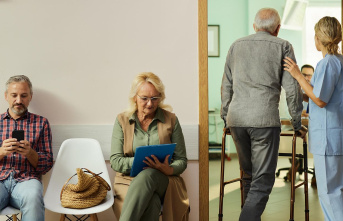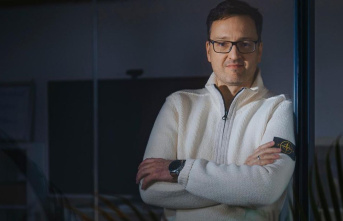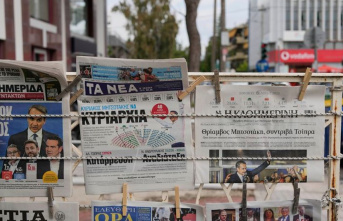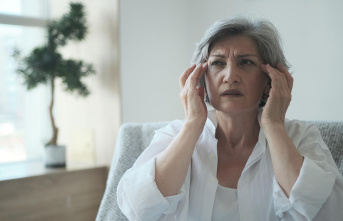"The direction we're headed in isn't good." The tone of Federal Health Minister Karl Lauterbach (SPD) with regard to the coronavirus pandemic is becoming more serious. And with good reason: the number of infections skyrocketed in time for the beginning of autumn, the hospitals are slowly reaching their capacity limits. Nevertheless, many of us now skillfully ignore the warnings.
And that's hardly surprising: Corona virus here, flu there and then there's the Ukraine war, inflation and as if that wasn't enough, the climate crisis hovers over it all like the sword of Damocles. Yes, we are drained from the mass of crises we are confronted with these days. It is more than understandable that there is then a lack of energy to deal with the repeatedly escalating pandemic, which for many is already over.
So you have every right if you don't want to torment yourself through the next text about mask requirements, distance rules and hygiene measures - we've all read countless of them in recent years. Nevertheless, you should read on. Because this time it should not be about restrictions, but about personal responsibility. And the question of why more and more people are doing without the mask, although we should actually know better by now.
Let's start with personal responsibility. Each of us is primarily responsible for our own well-being. When the general obligation to wear masks was lifted in the spring, many made a conscious decision to throw themselves into the crowds without a face mask. Since then, more and more people have joined this decision - regardless of the number of infections.
However, the fact that more and more people are doing without face masks is causing major problems for at least one section of the population. Risk patients and older people have to remain in lockdown and avoid social interaction because of the strong sense of security of some citizens in order not to be infected with the virus, which is still potentially deadly for them.
What some people take in terms of freedom is ultimately lacking in others. In this case, only a thin scrap of cloth separates us from equality. Apart from that, the virus is still a bit like Russian roulette for everyone without previous illnesses - nobody knows what to expect in the event of an infection.
This is actually nothing new. We know that the mask is one of the most effective and simplest methods against the unchecked spread of the corona virus. And yet we push past other people in narrow supermarket aisles without face masks, sit next to strangers in the cinema without a respirator or do without the mask when we go to restaurants, to concerts or to family celebrations.
There are several reasons for this. The psychologist Marcel Brass summed it up in an earlier conversation with the star: “If I go to a supermarket and am one of the few wearing a mask, it creates a conflict in me – between my conviction and the natural need to do what the group is doing." And because we don't like conflicts at all, we try to solve them as quickly as possible. The easiest way: remove the mask and adjust.
The solution to the peer pressure of not wearing a mask is almost as obvious as the problem is obvious. Because the phenomenon works both ways. As soon as more people start wearing a face mask where crowds are pre-programmed, more and more people will join. It just needs someone who sets a good example.
And that brings us to the next problem: We humans are real world champions when it comes to repression. And also creatures of habit. That means: After almost three years, we have simply gotten used to the new situation and therefore understand the corona virus, like the flu, as a necessary evil in our society. After years of restrictions, we no longer feel like adapting our everyday lives - even if it's just by wearing a mask.
It is a mixture of defiance, repression, shame and an unreal sense of security that leads us to confidently leave the FFP2 mask in our handbag instead of simply putting it on briefly when in close contact with other people. It would be a small step with a huge impact. To clarify: The Max Planck Institute in Göttingen found out in December 2021 that even a distance of three meters from another person does not protect - but wearing an FFP2 mask does.
And yes, of course there are also social arguments against wearing a face mask. For example, we do not recognize the facial features of our counterparts well, which makes communication more difficult. But is that or one of the other reasons just mentioned really a good argument for not wearing the mask, which could possibly protect our counterpart and ourselves from infection? You can only answer the question for yourself.
But: Especially in autumn, with falling temperatures and radiators staying cold, when the flu epidemic is just around the corner and the corona numbers are gradually shooting up again, we should at least think about using the mask more often. It is such a minor evil compared to social isolation or even a symptomatic infection that it is almost negligent not to at least consider wearing a face mask.
We are now in the third year of the coronavirus pandemic. In the last few months we have learned a lot about the virus and our social interaction. For example, what a high value respectful cooperation has - and that we should take care of each other. The mask is a low-threshold opportunity to show other people: I take care of you.
And by the way, with a face mask, we can help curb the spread of the corona virus in this autumn wave. There are only two ways a pandemic ends: either epidemiologically or through people's ignorance, as medical historian Jörg Vögele says in an interview with "ntv". The problem: there is only one "healthy" ending - and we are on the other side of the coin right now. So for this Corona autumn it's time again: Mask on and through - let's make sure it's really the last one this time.
Sources: Study by the Max Planck Institute, ntv


